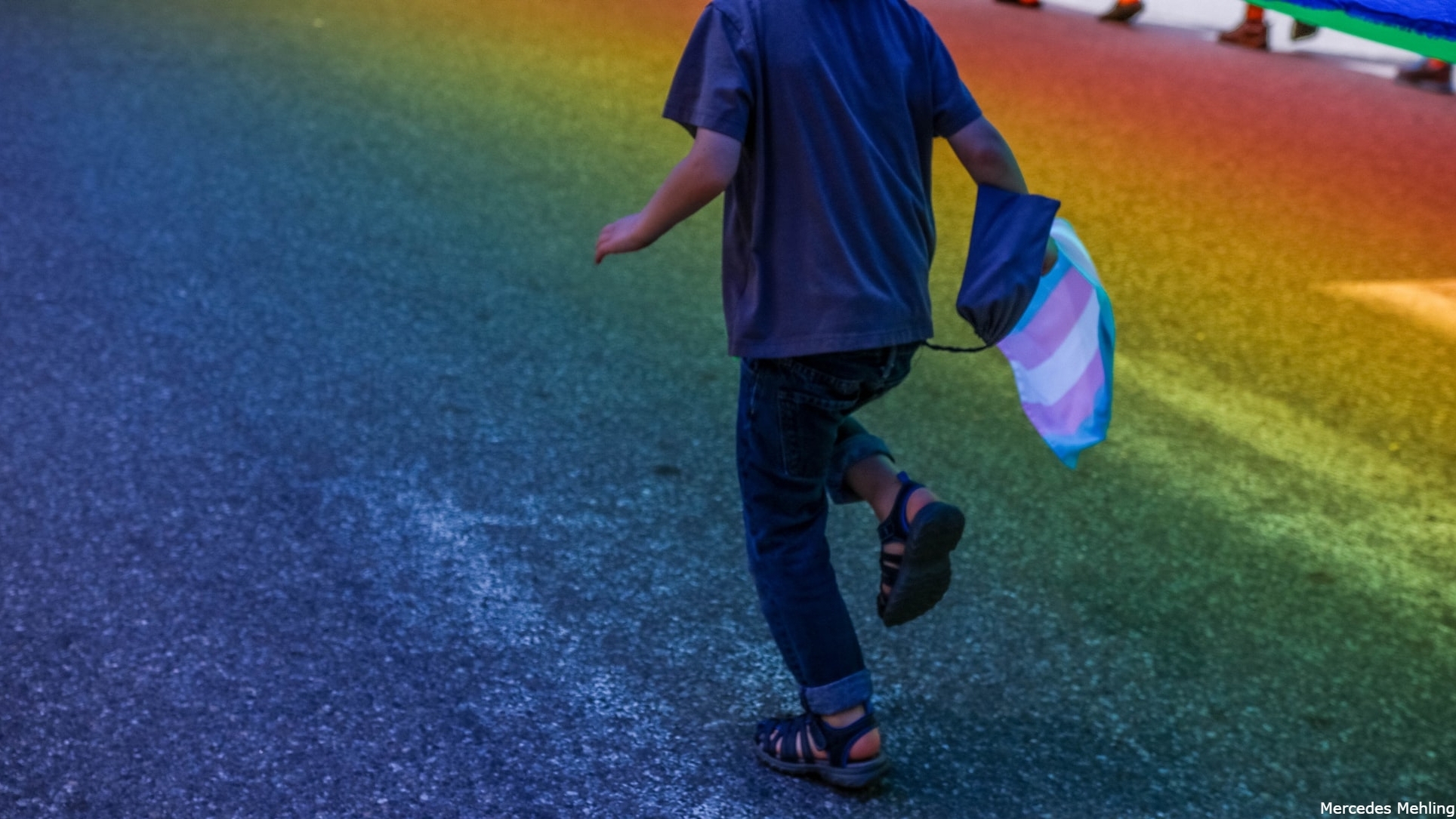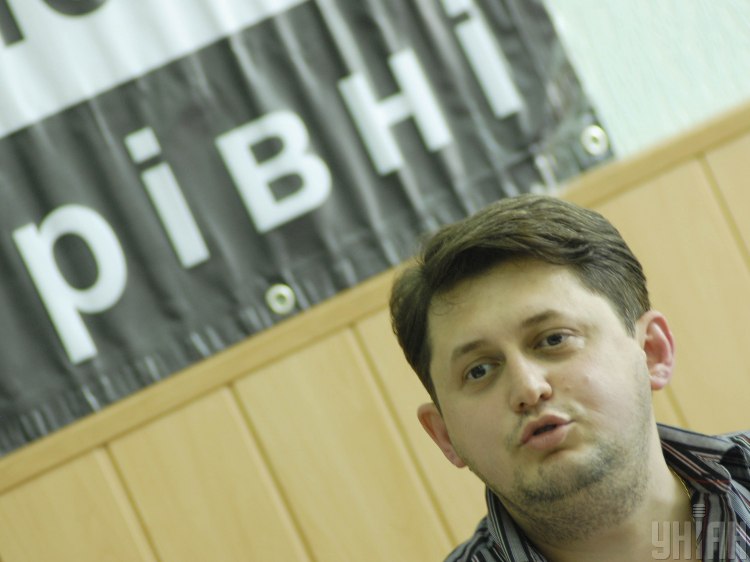Russia expels LGBT people from Crimea as part of a campaign to change the demography of the peninsula - human rights activists
Estimated reading time: 6 minutes
Kateryna Rashevska, a lawyer of the Regional Center for Human Rights (ROCHL), told about this during the online meeting "Racial discrimination in Crimea as a manifestation of the policy.

Russia expels LGBT people from Crimea as part of a campaign to change the demography of the peninsula - human rights activists
Russia persecutes representatives of the LGBT community in Crimea as part of its general policy to change the demography of the peninsula. This eventually leads to the displacement of representatives of the LGBT community from the peninsula.
Kateryna Rashevska, a lawyer of the Regional Center for Human Rights (ROCHL), told about this during the online meeting "Racial discrimination in Crimea as a manifestation of the policy of the occupying power".

The legal instruments, the discriminatory law-enforcement practice, the deployment of hostile rhetoric in the mass media, and the tolerance of homophobic organizations by the illegal occupation authorities are the instruments of this policy.
She reported that, having seized the peninsula, Russia spread its normative regulation over it. It does not have specific anti-discrimination legislation, the possibility of same-sex couples getting married, registering civil partnerships, adopting and establishing guardianship, and there is no prohibition of discrimination on the grounds of SOGI in the labor sphere.
"The policy of the Russian Federation aimed at discrimination of LGBT representatives in the medical, labor, and family spheres, numerous bans on the manifestation of sexual orientation and gender identity, administrative persecution and failure to defuse aggression against homosexuals and transgender persons contributed to the change in the demographic composition of Crimea," said Rashevska .
According to the RCPL, at the time of the temporary occupation of the peninsula, there were at least 16,200 LGBT representatives and about a hundred transgender people living in Crimea. The human rights organization assumes that several thousand LGBT representatives have moved, in particular, to Moscow and St. Petersburg, where the policy of the Russian Federation is less repressive towards such persons. Among those who left for the mainland of Ukraine or abroad, there is an activist core that had a significant impact on the demography of the peninsula, the Regional Center for Human Rights says.
The analysis of the judicial practice of the ROCSL proved that the motive of hatred is mostly not taken into account when qualifying crimes against the LGBT community. In addition, the Criminal Code of the Russian Federation still contains negatively colored vocabulary, such as homosexuality and lesbianism.
On the territory of the subjects of the Russian Federation, laws on the prohibition and promotion of non-traditional sexual relations and laws providing for administrative responsibility for such actions have been adopted and implemented.
The law on the prohibition and promotion of non-traditional sexual relations in Russia is used as a basis for restricting the right to peaceful assembly and freedom of expression, in particular, to holding LGBT parades and coming outs, which was repeatedly recognized as inadmissible by the European Court of Human Rights.
Rashevska notes the homophobic campaign in the mass media at the beginning of the temporary occupation of the peninsula, which had political implications.
Those who belonged to the LGBT community or began to support them were automatically considered foreign agents or persons loyal to the Ukrainian authorities. Homophobic rhetoric by occupation officials led to an increase in violent hate-based attacks against LGBT people. Victims of aggression in Crimea are not only LGBT representatives, but also people who can be perceived as such on the basis of external signs, - said Kateryna Rashevska.
According to her, attacks on the peninsula are both sporadic and planned. She drew attention to the fact that international right-wing radical movements have launched their activities on the peninsula, whose members arrange meetings with LGBT representatives by deception. During them, they deal with such a person, film it on a video camera and distribute the recordings on the Internet.
In addition, "local authorities" do not allow LGBT marches to be held on the peninsula. For example, during 2018, Russian activist Mykola Alekseev was banned from holding LGBT pride events in 14 cities of Crimea.
The head of the Liga LGBT Association in Mykolaiv and Odesa, Oleg Alyokhin, noted during the event that the illegal armed group "Crimean Self-Defense" declared that it would not allow LGBT events on the territory of Crimea. According to him, in such a rhetoric of hatred towards LGBT people, the public organizations of Sevastopol, Simferopol, and Yalta did not undergo re-registration under Russian legislation, as required by the occupation authorities. Because of this, community centers of the peninsula, which previously provided service services, in particular, legal services, have closed down their activities.
Three months after the actions of the Russian Federation, representatives of the LGBT community could not move so freely to mainland Ukraine, because the crossing of the administrative border of Crimea with the Kherson region was clearly recorded by the FSB. Because of this, social ties between public organizations in mainland Ukraine and Crimea have also been lost, - Oleg Alyokhin commented.
Also, a number of gay clubs in Crimea were forced to close down their work due to the introduction of administrative penalties by Russia.
Violations of the rights of LGBT communities are also in the labor sphere, say the ROCSL. On the peninsula, Ukrainian citizens are fired because of their orientation, and there is also discrimination when hiring them. The human rights organization named education workers and transgender people as the most vulnerable groups. The latter are unable to obtain a passport and complete the process of gender reassignment that began before the temporary occupation, which ultimately forces them to leave Crimea.
Kateryna Rashevska also recalled the ban by Roskomnadzor of the Dety 404 website, which provided free psychological support to LGBT minors.
Svyatoslav Sheremet, policy and legislative coordinator of the National MSM Consortium and leader of the Gay Forum of Ukraine public organization, says that the LGBT community that remained in Crimea has adapted to the realities there.
The situation of LGBT people in Crimea is extremely ambiguous from the point of view of LGBT people themselves and the community. A significant part of LGBT people have adapted to the realities. It is no secret that for the community itself, survival in any conditions is one of the principles of life. Therefore, a large part of the community is now saying out loud: "Everything is fine with us. Don't ask us questions about our position." Another active part of the community that left Crimea is waiting for political realities to change, which will allow them to return to a more active public regime, - Svyatoslav Sheremet said.
We will remind you that in September 2018, Russian human rights defenders from the Memorial anti-discrimination center published the testimony of an LGBT Crimean man who was tortured by security forces on the peninsula and forced to leave his home.
By ZMINA




